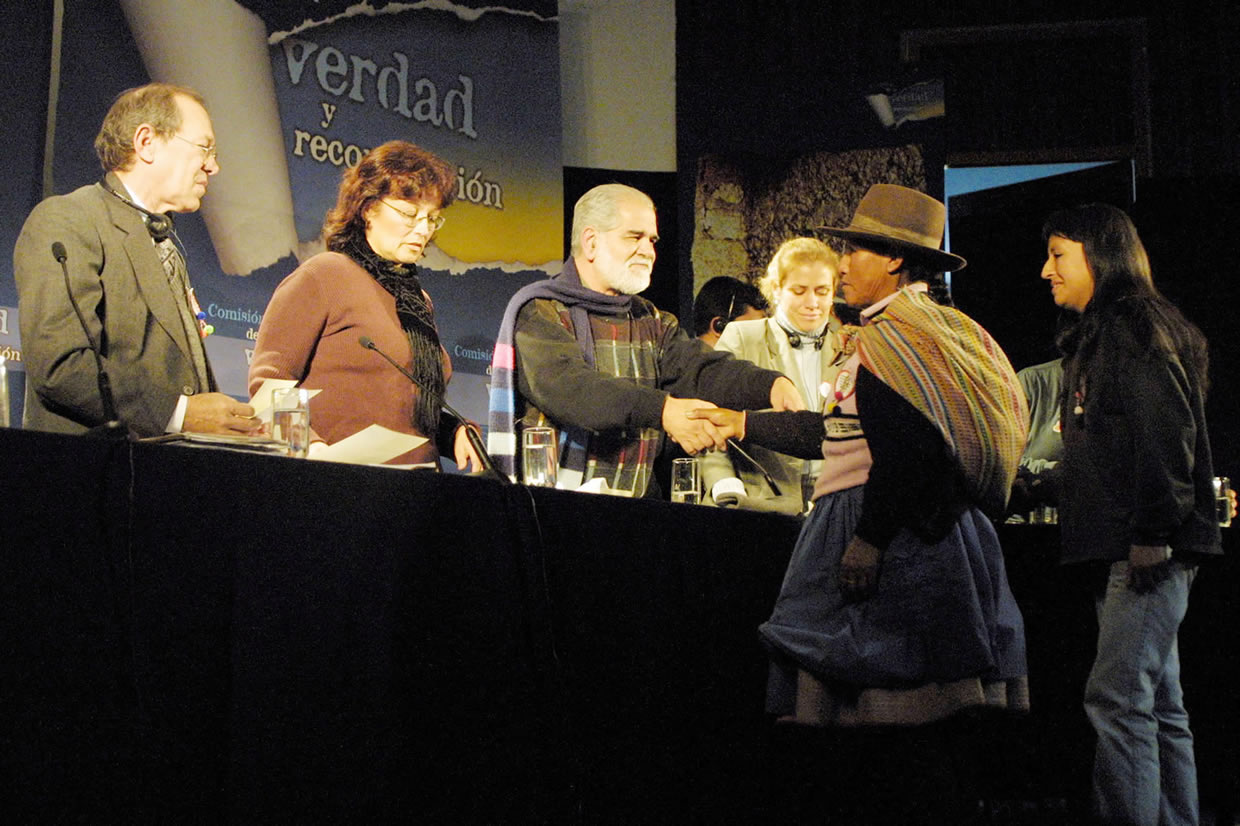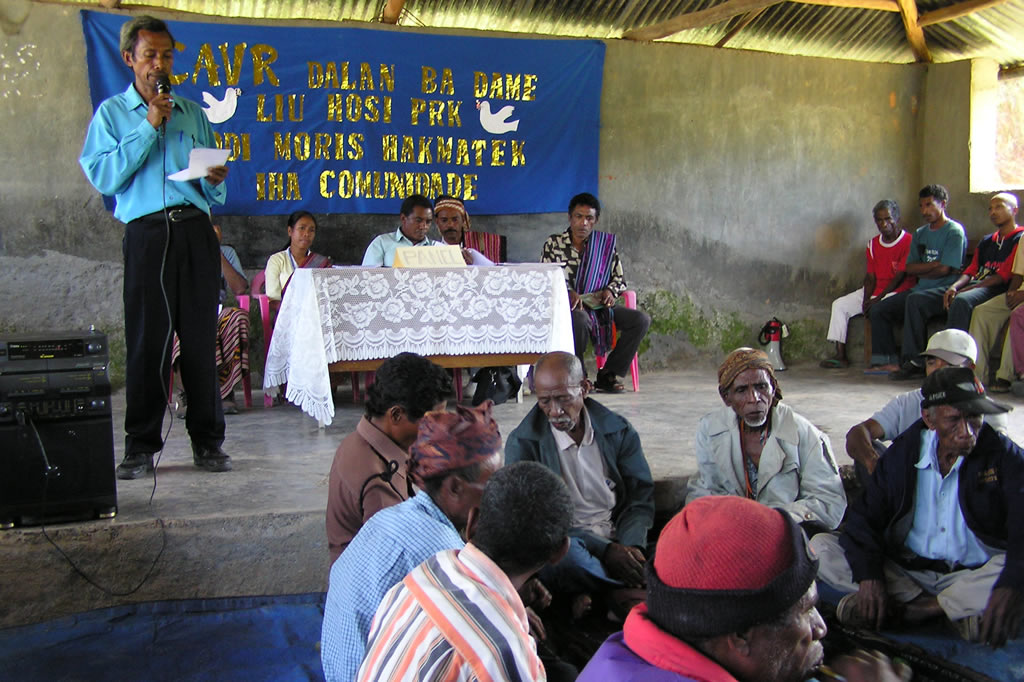“I decided to come home and say the truth, as I am doing today. I know if we had made it very secretive, without the public knowing what happened, the son who is today in another world would continue to torment us; because it would have been a burden. When you have something to say and you don't say it, it is a load… My mind and that of my family is [now] free. ”— Sahr Gbekie, Testimony Giver, Sierra Leone Truth and Reconciliation Committee Hearing, on why he returned to Freetown to speak about the death of his son during the civil war.
People who have experienced atrocities carry that weight with them for the rest of their lives. Providing them with the opportunity to publicly reveal the truth about what happened can be an important step in the path to recovery and rebuilding after a conflict—not only for them, but for society as a whole. Having concrete steps to address these atrocities, like holding a truth commission, can help societies to rebuild and prevent such events from happening again.
Sahr Gbekie had the opportunity to speak at a Sierra Leonean Truth and Reconciliation Committee hearing on the story of how his son had been killed during the civil war, more than a decade after it had happened. The hearing was part of a series of public hearings, in which people could testify about their experiences during the civil war. Those who chose to testify had their experiences put on the public record and, in the case of Sierra Leone, these testimonies are available online.
However, few truth commissions, including Sierra Leone’s, are a perfect success. Many people in Sierra Leone, for example, worried that by testifying they could incriminate themselves. As a result, many important testimonies went unrecorded.
Was it, and other truth commissions, set to fail? What can we learn from past truth commissions—failures and successes—to ensure that future commissions are set on a path to success?
The International Center for Transitional Justice and the Kofi Annan Foundation joined efforts to reexamine assumptions about how truth commissions may be established and what makes them operate effectively.
This multimedia piece presents the most significant findings and reflections from the report, Challenging the Conventional: Can Truth Commissions Strengthen Peace Processes?

Photo: Paulina Antezana giving testimony before commissioners of Peru's Truth and Reconciliation Commission (John Watson Riley)
Truth commissions are temporary, official inquiries established to determine the facts, causes, and consequences of past human rights violations. By giving special attention to testimonies, they provide victims with recognition, often after many years of their voices being silenced or ignored.
The goal of a truth commission may be to discover and learn more about past abuses or formally acknowledge them. Additionally, there may be calls for prosecutions of alleged perpetrators and institutional reforms. Each nation or society has different needs, histories, and contexts. They therefor have a different approach to moving towards reconciliation and preventing conflict from reoccurring. Truth commissions take action through conducting research and investigations and providing victim support and policy recommendations.
Read more on how truth commissions are created here.
“But I want the truth…”
“At least to know why, who did it, or who ordered it. Or to know where they buried him. ” — Conversation between Yoladis Zúñiga and Petronila Mendoza, who lost their husbands during the civil war in Colombia
Societies and individuals, especially victims, are entitled to know the truth about mass human rights violations committed against them, including in the context of armed conflict or repression. Truth commissions are just one method of enforcing the right to truth. Memorials, freedom of information legislation, declassification of archives, and investigations into the missing and disappeared are all tools to fulfill the right to truth and uncover the reality of what happened during a painful past.
The right to the truth has been officially recognized at the international level by the United Nations in the Declaration on the Protection of All Persons from Enforced Disappearance (1992), the Basic Principles and Guidelines on the Right to a Remedy and Reparation (2005), and the International Convention for the Protection of All Persons from Enforced Disappearance (2006).
National governments also have the duty to uphold the right to truth. A state must counter denials of abuse by, for example, preserving documents and opening archives so that truth commissions, courts of law, memorials, and searches for the disappeared can uncover and recognize the truth about what happened.

Commission for Reception, Truth and Reconciliation in East Timor (ICTJ)
Learn

Women activists in Kenema, Sierra Leone, in December 2012 (Glenna Gordon/ICTJ)
Learn